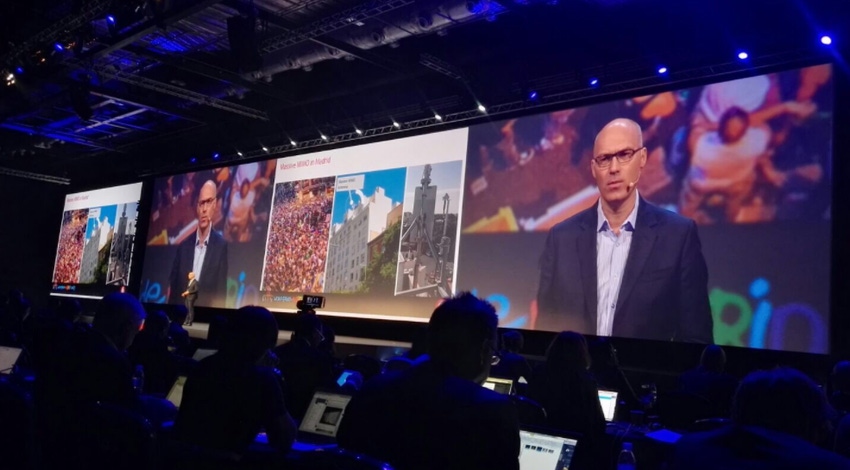Brutal honesty in an industry that usually flirts with the line between science and fiction; Vodafone’s CTO Johan Wibergh begged for sanity from the telco heavy weights.
November 15, 2017

Brutal honesty in an industry that usually flirts with the line between science and fiction; Vodafone’s CTO Johan Wibergh begged for sanity from the telco heavy weights.
“We have a tendency to overhype things,” said Wibergh, in an almost ironic delivery.
More specifically, Wibergh focused his talk at the Global Mobile Broadband Forum on two areas which he believes the industry needs to focus on. Firstly, is the idea of the efficiency gains which can be achieved through 5G networks. And secondly, we need to stop overpromising and start to communicate realistic 5G ambitions to the world.
Problem is that telcos are very good at making big, grand promises and under-delivering. It’s part of the DNA of the industry, but it seems Wibergh is on a one man mission to rationalise the irrational. Assuming each ‘G’ is matured over the course of a decade, is the industry being clear enough over the benefits? Of course, what can be delivered in the first two years is completely different from the final two, but whether this message is being communicated remains to be seen.
One interesting observation from Wibergh was the success of 2G and 4G. These were two developments which were genuine step-changes in connectivity, and both were successful. There were realistic promises offered by the industry to the customer, which were deliverable. 3G however was overhyped. It was also more of an evolution than a dramatic step-change. The same could be said for 5G, but has the industry learned to make reasonable claims, or will the desperation born out of eroding profits see the hype lead it down the 3G route?
The second observation from Wibergh was over the efficiency gains which can be realised from 5G. While this is certainly a significant benefit for the industry, it is one is rarely discussed. Wibergh would like to see this change.
Of course the efficiency gain depends on how much you spend in the first place, part of this will be dictated by the amount governments charge for spectrum licences, but it is a benefit none-the-less. One question which should perhaps be asked is whether this efficiency gain would accelerate the race to the bottom? If data can be delivered more cost effectively, will this benefit be passed onto the consumer? It would certainly create an attractive offer to steal market share, but maybe it would also consolidate the image of telcos as utilities?
Obviously there are still a huge number of questions still to be asked about the realities of 5G, but one which will become apparent quite soon is whether the telcos have learnt their lesson about overhyping. Marketers will always need something new to shout about, but let’s hope they can be kept on a realistic leash.
About the Author(s)
You May Also Like








.png?width=300&auto=webp&quality=80&disable=upscale)


_1.jpg?width=300&auto=webp&quality=80&disable=upscale)


.png?width=800&auto=webp&quality=80&disable=upscale)